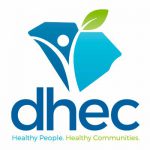
By Lindsay Street, Statehouse correspondent | The state health agency leading the pandemic response has earned bipartisan praise from state lawmakers. But some also criticize it as being too weak, ineffective and slow during the pandemic of the century.
“You can always point fingers but DHEC (the S.C. Department of Health and Environmental Control) really forged ahead and took control of what they were supposed to do,” said Beaufort Republican Rep. Bill Herbkersman, who chairs the budget-writing subcommittee on health expenses in the state.
But whether DHEC also may be viewed as gutted, understaffed and left ill-prepared by past leaders for an epidemic or other emergency appears to be a matter of political ideology. While many lawmakers have praised the staff at DHEC, Democrats say they are concerned the agency has been weakened under Republican leadership.

“You have some incredibly hardworking people at DHEC, who were overwhelmed, understaffed,” said Camden Democratic Sen. Vincent Sheheen, whose district experienced the first hotspot of the virus in South Carolina.
Regardless, many lawmakers agreed that DHEC will need more money going forward.
This week, after two months of coronavirus statistical updates, the agency announced it would expand testing and contact tracing as the state continues to see hundreds of new cases daily. Next week, lawmakers will evaluate further emergency funding as they meet for the first time since April 8.
‘The blame should be on us’
DHEC saw big changes from 2003 until 2016 under Republican governors Mark Sanford and Nikki Haley. The agency lost 20 percent of its workforce and, since 1998, has gone from an annual budget of $169 million to $107 million, according to an April 19 report from The Post and Courier. Some of the biggest cuts came during the Great Recession.
That decrease has come as the state’s population has increased from 3.84 million to 5.15 million, according to the U.S. Census Bureau.

North Charleston Democratic Rep. Wendell Gilliard described the agency as chronically short-staffed and underfunded. He said while testing supplies were a nationwide issue, the state agency struggled with responding to public needs.
“When this situation took place, it just added insult to injury,” he said. “They weren’t ready for this and we, as lawmakers, did not help prepare them for this. The blame should be on us.”
But, Sheheen said, Republican Gov. Henry McMaster and leadership in the General Assembly have worked to bring back adequate levels of funding since 2017.
“For 12-plus years, these agencies were brought to the brink of dysfunction,” Sheheen said. “We’re reaping what we sowed … Now, with the economic downturn, it’s going to be even harder to bring it back.”
State revenues are expected to get a massive hit from public health measures taken by the state, local governments and citizens trying to prevent overwhelming hospital capacity. So far, the state has avoided crushing hospitals’ abilities to treat patients. As of May 4, all regions in the state reported fewer than 70 percent of hospital beds were being used.
The current situation
During the pandemic, DHEC has provided daily news releases and web updates, along with data sets, including demographic data, on coronavirus cases. Legislators said the agency has provided them regular updates, too.
“They have certainly maintained lines of communication,” said Orangeburg Democratic Sen. Brad Hutto, who sits on the Senate’s Medical Affairs Committee.
In March, state legislators injected $45 million into the agency amid the coronavirus pandemic. More money could be on the way, at the governor’s discretion, once the House and Senate convene next week to pass a continuing resolution that will keep state government operating at 2019-2020 levels and also slate about $165 million from last year’s budget surplus for responding to the pandemic.
South Carolina has experienced six deaths per 100,000 as of May 7, which is among the lowest rates in the nation. But that number could be misleading since many experts say not all coronavirus-related deaths are being counted amid limited testing.
And South Carolina is among the states testing the least. According to NPR, the state averages 3,324 tests per day, but needs a minimum of 8,846 tests by May 15 to help curb and track the virus. Since testing began, 73,442 tests have been conducted in the state as of May 7, most of which have occurred at private labs.
Moving forward
The increased testing announced this week will include more than 40,000 tests for all nursing home staff members and patients by the end of May, the agency said.
 DHEC media liaison Laura Renwick said the state is also ready to do more contact tracing moving forward. During normal operations, DHEC has about 20 contact tracers on staff to follow the spread of diseases such as tuberculosis or hepatitis. By May 1, the number of contact tracers swelled to 230 who are able to investigate up to 3,450 contacts per day, according to Renwick.
DHEC media liaison Laura Renwick said the state is also ready to do more contact tracing moving forward. During normal operations, DHEC has about 20 contact tracers on staff to follow the spread of diseases such as tuberculosis or hepatitis. By May 1, the number of contact tracers swelled to 230 who are able to investigate up to 3,450 contacts per day, according to Renwick.
“We have capacity to do even more as we scale up our number of contact tracers in anticipation of increased testing availability,” she said.
Christian Soura, the S.C. Hospital Association’s vice president of policy and finance, said his organization expects up to 1,000 DHEC contact tracers by June 1.
“That expansion will do a lot to help us limit the spread,” Soura said, adding that he looks forward to a coordinated response with hospitals to help maximize testing efficiency. Soura formerly directed the state’s Medicaid agency, S.C. Department of Health and Human Services.
Stockpiling eyed for future
There is little doubt among legislators that DHEC was caught unprepared. In its Jan. 22 presentation to the House Ways and Means Committee, there is no mention of pandemic or the coronavirus. The United States had its first confirmed case two days earlier on Jan. 20.
“In all fairness, nobody anywhere in the country, let alone in South Carolina, was ready for what has taken place with COVID-19 situation. In other words, we were caught off guard,” said Gilliard, who sounded the alarm bell as early as Jan. 31 to McMaster and the legislature.
For Townville Republican Rep. Jonathon Hill, who serves as second vice chair on the House’s Medical, Military and Public Municipal Affairs Committee, any hiccups in response so far are related to an inability to predict the future.
“If we could have anticipated this could have happened, we would have been more prepared,” he said.
Democratic lawmakers say they want to see better stockpiling and further staffing improvements.
“(DHEC was) really at the mercy of the federal government for supplies because the state hadn’t done any stockpiling,” Sheheen said.
Lexington Republican Sen. Katrina Shealy said she will be a part of lawmakers recommending legislation following the pandemic, and that stockpiling is a top priority to address. Hill agreed.
- Have a comment? Send to: feedback@statehousereport.com















 We Can Do Better, South Carolina!
We Can Do Better, South Carolina!
Gee, legislators were unaware what they had done to the SCDHEC dam inspection program until the floods of 2015 and, now, we learn they were unaware of what they had done to SCDHEC public health programs until Covid-19. After being caught flat footed in 2015, smart people would have looked at the rest of the agency for any other areas they had neglected to fund and try to be better prepared.
As for those who say a pandemic couldn’t have been predicted, I suggest they start watching/reading national news and they would have known years ago. What do they think the National Stockpile is for…are they as ignorant as Jared Kushner…
But, as long as voters keep electing faux Republican libertarians who tell them government doesn’t work and do everything they can to insure that it doesn’t, it won’t.
Pingback: Charleston Currents – NEW for 5/11: Parks reopening; More absentee voting; #MuseumWeek
Pingback: Charleston Currents – NEWS BRIEFS: State’s public health agency overwhelmed, underfunded